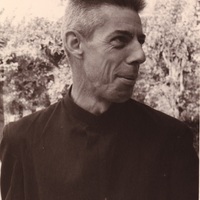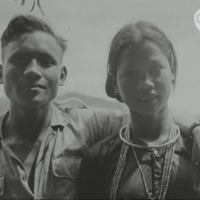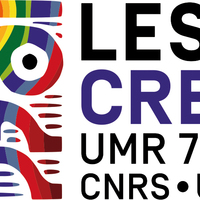Solo of "ddong-köni": tune of funeral cries
Item
- Edited Title
- Archivist's Original Title
- Original description
- Time duration
- Recording date of the original material
- Acquisition Date
- Population
- Place of the cultural origin
- Country Name
- Recording place
- Resource Language
- Performer/Speaker
- Archivist Category
- Recording context
- Instrument, Original Archivist Data
- Instrument (Supplementary/Annotated Data)
- Collector
- Name of original Collection
- Collection source citation
- Related material
- External reference
- Holding Institution of Original Materials
- Licensing Institution
- Accessing Institutions
- Copyright Information
- Copyright Notice
- Physical format
- Preservation State of Physical Object
- Original item number
- SEAH Identifier
- Provenance
-
en
Ddong-köni
-
en
Solo of "ddong-köni": tune of funeral cries
-
fr
Solo de "ddong-köni" : air des pleurs funéraires
-
en
Recorded in situ. It is an air of funeral tears in the style of the legends melodized at Plöi Ku "Ddong-köni" is an ensemble, composed of a two-stringed zither on a calabash ("ddong") and a "köni" fiddle with a vibrating “kuat” string. Vibrations are produced by two sources: a bow that moves back and forth on the string; a string attached to the string and the opposite end of which is in the mouth of the player. Sound recordings collected by Jacques Dournes, French missionary and researcher, in Viet Nam in 1966 among the Jarai populations: instrumental solos, invocations, songs and sound ambiances. Special features: the piece is played by a single musician who combines the two instruments (the fiddle monochord _ köni _ and the two-stringed zither _ ddong _).
-
fr
Enregistré en situation. C'est un air de pleurs funéraires à la manière des légendes mélodiées à Plöi Ku
"Ddong-köni" est un ensemble, composé d'une cithare à deux cordes sur calebasse ("ddong") et d'une vièle "köni" à une corde vibrante "kuat".
Les vibrations sont produites par deux sources : un archet qui va et vient sur la corde ; une ficelle fixée à la corde et dont l'extrémité opposée est dans la bouche de l'instrumentiste.
Enregistrements sonores collectés par Jacques Dournes, missionnaire et chercheur français, au Viet Nam en 1966 auprès des populations Jaraï : solos instrumentaux, invocations, chants et ambiances sonores.Particularités: la pièce est jouée par un seul musicien qui combine les deux instruments (la vièle monocorde _ köni _ et la cithare à deux cordes _ ddong _).
-
en
00:02:06
-
en
1966-03-12
-
en
1967
-
en
Jarai
-
en
Phu Bon Province, Ploi Pa Village
-
en
Jarai
-
en
Wan;Wan
-
en
Music (Instrumental)
-
en
Field recording
-
en
Vielle; Zither
-
en
Koni;Ddong
-
en
Viet Nam, Solos instrumentaux, invocations, chants et ambiances sonores chez les Jaraï, Dournes, 1966.
-
en
Dournes, J. "La musique chez les Joraï" in "Objets et mondes", t. V, fasc.4, hiver 1965 pp.211-244, photos
-
In Copyright. Non-Commercial Use Permitted
-
For any use, please contact the CREM-LESC (CNRS, Nanterre University, France): crem.lesc[at]cnrs.fr ; See information at https://archives.crem-cnrs.fr
-
en
Magnetic tape
-
en
Recording: 19cm/s, Track A. Average sound quality. See DT; file editor: Tran Quang Hai . Addition on the instrument of "ddong-köni" by Aliénor Anisensel, temporary worker 2013.
-
en
CNRSMH_I_1967_001_001_08
-
en
CNRS_SEAHMH_I_1967_001_001_08
-
en
Recording archived at Musée de l’Homme, Paris, by J. Dournes and preserved at BnF.
- Media
 CNRSMH_I_1967_001_001_08
CNRSMH_I_1967_001_001_08




